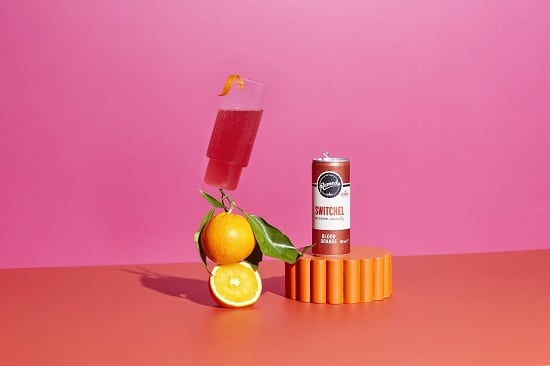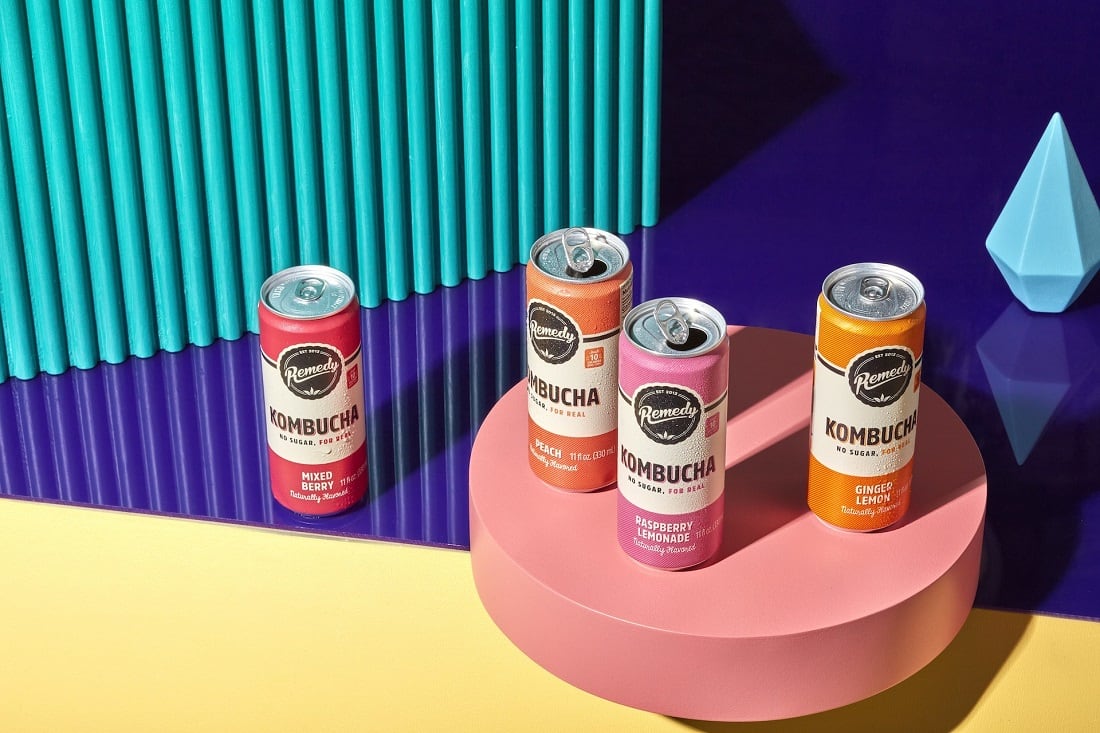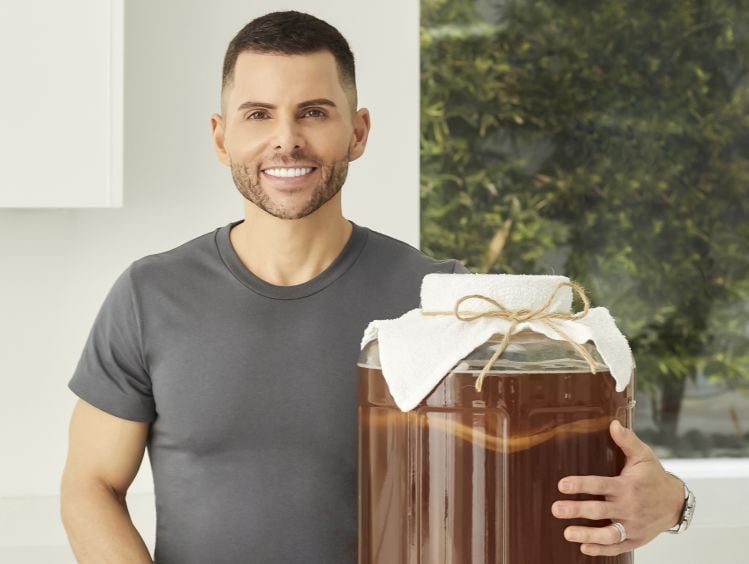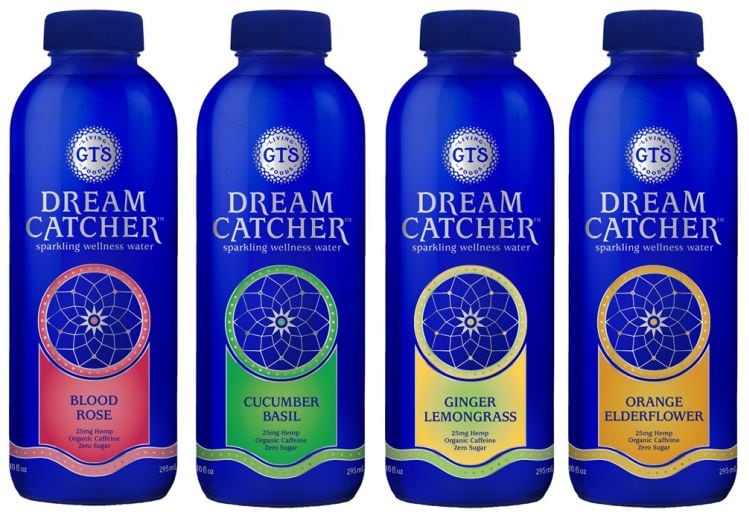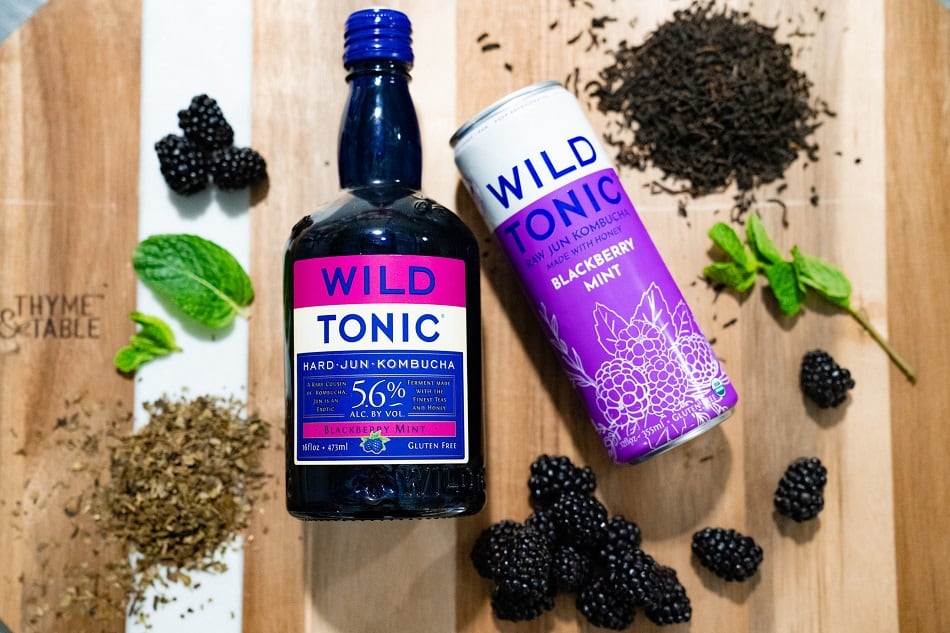Founded by Sarah and Emmet Condon in their home kitchen in Melbourne, Australia, nearly 10 years ago, Remedy’s mission has been to provide consumers with a healthier, fizzy alternative to soda that is still full of flavor.
"We had been struggling to find foods or drinks that were good for you and packed a punch in flavor, and we knew plenty of others felt the same, so we made the decision to take what we'd been brewing for ourselves at home and have a crack at turning it into a business. We had an inkling of what was possible, but it was still a massive risk at the time, when kombucha was unheard of outside of very niche health circles in Australia,’” said Emmet Condon.
US market ambitions
Now, the brand is ready for the US market, where kombucha has made the mainstream jump from the natural channel to conventional retail and where the category is still growing but at a slower rate than in previous years.
According to SPINS data for the 52 weeks to April 18, 2021, dollar sales of refrigerated kombucha and fermented beverages (which also includes shelf-stable kombucha), were up +3.93%, driven by +7% growth in the conventional channel (MULO) and partially offset by a -7% decline in the natural enhanced channel.
According to Cory Comstock, CEO of Remedy International, the brand has a few key points of differentiation which will help it solidify a spot in the US kombucha market, where there is still a major untapped market of non-kombucha drinkers.
"Its unique abilities to be shelf-stable with no sugar and offered in cans makes it easier for consumers to enjoy something healthy, full-flavored, and convenient to carry wherever they go," Comstock told FoodNavigator-USA.
'During fermentation, the live cultures consume all of the sugar'
According to Comstock, Remedy makes its kombucha "the old-school way" without pasteurization, allowing the brand to claim the term 'raw' on package. The company begins with tea and organic raw sugar which is fermented together for 30 days along with a SCOBY (symbiotic culture of bacteria and yeast) dating back 50 years in Australia.
The company further explains that the live cultures in every Remedy drink, which are a relative of the same live culture the brand used in its very first batch years ago, are "extremely strong, healthy and happy" and can withstand ambient environments and activate once they reach the gut, the company claims.
"The brewing process happens in a warm environment and our testing has shown the live cultures not only survive but thrive right throughout shelf life (12 months from the time of bottling/canning), with absolutely no difference in quantity or quality whether kept in or out of the fridge," said Comstock.
But how is the company able to claim being zero sugar?
During the fermentation process, claims Comstock, the live cultures consume all of the sugar to produce organic acids such as acetic acid explaining the drink's vinegar taste. The company then adds in erythritol, stevia, and natural flavors to give the beverage its full-flavored taste profile and to cut down on its acidity.
While all Remedy drinks are fermented, the company force carbonates them prior to bottling or canning to ensure consistency from batch to batch, noted Comstock.
The end product is 10 calories per 11-ounce can with 0g of added sugar.
But is it kombucha?
According to the KOMBUCHA Act (‘Keeping Our Manufacturers from Being Unfairly taxed while Championing Health Act’), a kombucha beverage is defined as a beverage which:
(A) is fermented solely by a symbiotic culture of bacteria and yeast,
(B) contains not more than 1.25 percent of alcohol by volume,
(C) is sold or offered for sale as kombucha, and
(D) is derived from sugar, malt or malt substitute, tea, or coffee, and not more than 20 percent other wholesome ingredients.
While Remedy meets the standard definition of kombucha under the KOMBUCHA Act, it is not clear whether non-nutritive sweeteners such as erythritol and stevia leaf extract, which the brand uses to sweeten its drink post-fermentation, are considered to be "other wholesome ingredients," outlined in the legislation.
US market plans
For the US market, Remedy is launching direct-to-consumer on Amazon and shipped nationwide, and will pursue brick-and-mortar retail in due course, said Comstock.
"As far as marketing, Remedy is excited to bring its cheeky Aussie charm to the US, staying authentic to its mission of shaking up the drinks landscape for good by making it easier for people worldwide to make healthier choices," added Comstock.
In addition to its zero sugar canned line which comes in four flavors - Ginger Lemon Kombucha, Peach Kombucha, Mixed Berry Kombucha, Raspberry Lemonade Kombucha - Remedy is launching its Blood Orange Switchel ACV (apple cider vinegar) in the US market.
